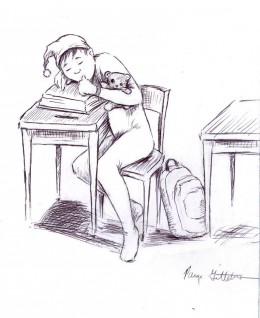
Effective next semester, you might have to take a class that ends at 10 p.m. Because of rising enrollment and shrinking classroom space from ongoing construction projects, Binghamton University has extended class times, which currently end at 9 p.m. The administration didn’t notify or consult students while making the decision, and failed to take into account the consequences of class time extension. The change is detrimental to students and faculty alike.
By mandating certain students stay in class until 10 p.m., the opportunities for them to participate in student groups are greatly diminished. No one should be forced to choose between their favorite club and a class they need in order to graduate. It may not seem like a loss to University administrators — whose offices mostly close at 5 p.m. — but participation in such groups fulfills students socially and intellectually. The extension also affects students who work, whether they choose to take the late shift or need to wake up early for work the next morning. Even students without extracurricular or work commitments could be left with an awkward schedule lending itself to sleep deprivation.
Non-traditional students will also be harmed by the extension. Some of these students, typically much older than the typical 18-to-22 college demographic, have families. With classes filling up quickly, some will be forced to stay in class during the evening when children come home from school. At 10 p.m., parents should be reading their kids a bedtime story, not taking lecture notes on German studies or computer science.
Faculty members have families, too. Professors are some of the most vocal opponents of the extension and with good reason. Many faculty members live in neighboring towns like Ithaca and have long commutes. If an instructor’s class ends at 10 p.m., he or she might end up turning into the driveway at 11. Our instructors did not sign up to teach night school.
The most disturbing aspect of this extension is the lack of communication between the University and the students. The silence is characteristic of the delayed announcement of the housing selection policy changes. We understand that the University is undergoing significant development in a short amount of time. We do not understand why the University seems unwilling or unable to communicate the effects of these changes to students ahead of time, so that students are able to adjust their lives accordingly.


